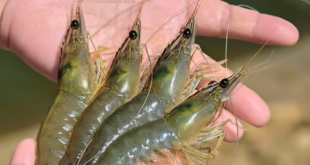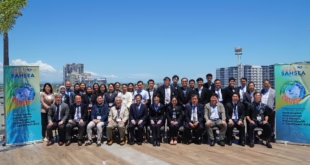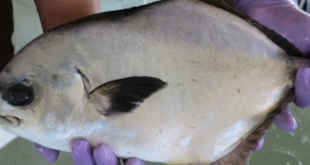By Development Communication Section
ROXAS, Oriental Mindoro – A 14-hectare farm of a group of young professionals, bent on helping their community through aquaculture, was recently awarded a certification by BFAR MIMAROPA to be their official techno-demo farm for organic aquaculture.
The Tamaraw Young Professional Reformers (YPR), an organization of young professionals in Mindoro, ventured into crab farming and partnered with the Southeast Asian Fisheries Development Center – Aquaculture Department (SEAFDEC/AQD) in organizing a training course on crab culture for fish farmers in Mindoro last year. The training was organized upon the recommendation of BFAR MIMAROPA.
Ar. Francis Neil Quijano, one of the core directors of Tamaraw YPR, said that they are already fully operational in an initial 3.5 hectares and further development is on-going. “We are now dreaming of putting up a crab hatchery,” he said.
Quijano revealed that the training by SEAFDEC/AQD helped the organization in improving the aquaculture production in their existing farms. “SEAFDEC/AQD played a big part in educating fellow agriculturists in Mindoro,” he added.
With this development in their farm, Ar. Quijano is looking forward that SEAFDEC/AQD will still be a part of their education program in aquaculture especially that they are currently processing their accreditation as a TESDA Farm School.
Aside from crab farming, the organization is now also into milkfish farming and the official partner of BFAR NIFTDC for molobicus tilapia hatchery.


 SEAFDEC/AQD Southeast Asian Fisheries Development Center | Aquaculture Department
SEAFDEC/AQD Southeast Asian Fisheries Development Center | Aquaculture Department



